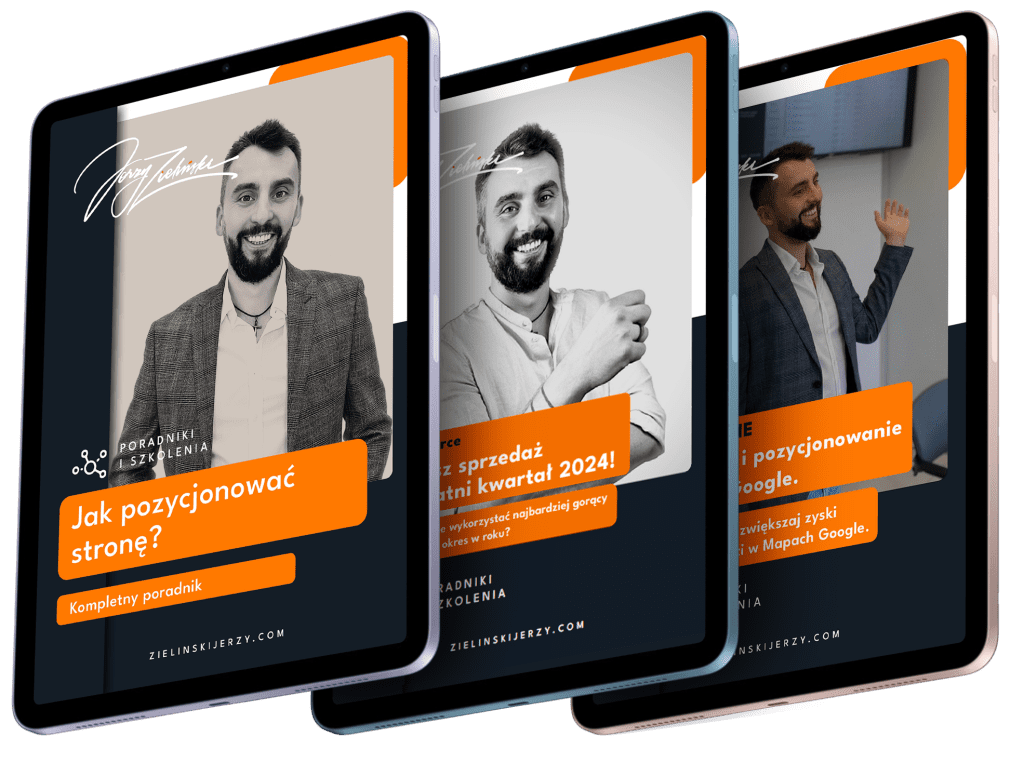If you run a business and care about visibility in Google, you’ve certainly noticed that search results look different today than they did a year ago. At the top of the page, a box with an AI-generated answer appears increasingly often – this is Google AI Overviews. This change fundamentally impacts how users interact with the search engine, and you as a business owner must adapt your content strategy if you want to maintain visibility and website traffic.
Google AI Overviews and SEO – why does this change everything for your business?
The relationship between Google AI Overviews and SEO is not just a technical curiosity, but a real business challenge. According to industry analyses, websites may experience organic traffic drops of even 25-50%, especially those based on informational content. This happens because users get a ready-made answer without needing to click through to your site – a phenomenon called zero-click searches.
Imagine this situation: a potential customer types a question related to your industry into Google. Instead of reviewing several results and landing on your site, they receive a synthetic AI-generated answer that draws information from multiple sources simultaneously. If your content wasn’t included in this answer, you become invisible. However, if it was cited, you gain expertise and authority – even if the user doesn’t click the link.
How to write for AI Overviews – specific content creation principles
Writing for AI Overviews requires a completely different approach than traditional SEO. Instead of focusing on mechanically placing keywords, you must directly answer specific user questions. Google AI analyzes content semantically, extracting fragments that best respond to search intent.
Start by identifying the most common questions your potential customers ask. If you run a construction company, don’t write a general article about renovations, but precisely answer the question: “How much does a bathroom renovation cost in a two-room apartment?” or “What formalities are needed to install air conditioning in an apartment building?” Each of these answers should be placed in a separate section with an H2 heading, formulated as a complete question.
Structure is critically important. Google divides your content into smaller fragments, analyzing them separately. Therefore, each section should contain a complete, concise answer – ideally in the first two sentences of the paragraph. Only then can you expand on the topic, providing additional details, examples, or context. Avoid long introductions – AI favors content that immediately delivers value.
Optimization for AI – technical aspects you must implement
Optimization for AI is not just about content, but also technical solutions that help algorithms understand your site. The first step is implementing structured data, such as schema markup types like Article, FAQ, or HowTo. These tags help Google precisely assign your content to specific queries and increase the chance of appearing in AI Overviews.
If you run an online store, ensure current product feeds in JSON-LD format. Google AI increasingly uses this data to generate real-time answers, showing prices, availability, and reviews without needing to visit the product page. This means that if your data is incomplete or outdated, the algorithm will skip your offer in favor of competitors.
Another element is page loading speed and mobile responsiveness. Google evaluates not only content quality but also user experience. If your site loads longer than three seconds or displays poorly on smartphones, even the best content won’t make it into AI Overviews. Tools like Google PageSpeed Insights will show you which elements need improvement.
The future of SEO in the context of artificial intelligence
The future of SEO doesn’t mean the end of optimization, but its evolution toward greater substance and authenticity. The traditional approach, based on mechanical keyword selection and link building, is giving way to a strategy based on expertise and delivering real value to users. Google is increasingly recognizing mass-generated or artificially-sounding content, eliminating it from results.
In the coming years, building authority outside your site will be key. Media mentions, citations by other industry authorities, presence on platforms like Reddit or Quora – all of this influences how Google perceives your website. If you’re an expert in your field, invest in digital PR, guest publications, and participation in industry discussions. These aren’t just links, but above all credibility signals that AI takes into account when generating answers.
It’s also worth remembering that AI Overviews don’t eliminate the need for presence in classic organic results. Users still click on links, especially when they need deeper analysis, offer comparisons, or information verification. Your strategy should combine optimization for AI with traditional SEO, creating a cohesive presence at all levels of search results.
Comparison of SEO for traditional results and AI Overviews
AspectTraditional SEOSEO for AI OverviewsOptimization priorityKeywords and backlinksSemantics, context, and user intentContent structureFlexible, keyword density mattersLogical H2 sections with complete answersAnswer lengthExtensive articles without specificsConcise answers at the beginning of each sectionStructured dataOptionalCritical (FAQ, HowTo, Article)Product feedsImportant for Google ShoppingEssential for AI visibilityAuthorityMainly backlinksBacklinks + mentions + media citationsUser goalGather information from the siteReceive answer without clicking
Conclusions – how to act today so you don’t lose visibility tomorrow
Start with an audit of your current content. Check which articles answer specific user questions and which are merely general considerations. The latter require restructuring – divide them into smaller sections, each with a clear question in the heading and a direct answer at the beginning. Implement structured data, update product feeds, and take care of technical site aspects.
Adapting your content strategy to the reality of AI Overviews is not an option, but a necessity. If your company operates locally, for example offering SEO in Bydgoszcz, you have a particular advantage – local queries still generate traditional results, and competition in this segment is often smaller than for nationwide phrases.
Remember that AI Overviews are not only a threat but also an opportunity to build an expert image. If Google selects your content as the source of an answer, it means public confirmation of your credibility. Even if the user doesn’t click the link immediately, your brand will be remembered as an authority in that field. In the long term, it’s precisely recognition and trust that translate into conversions.
Do you need support in optimization for AI Overviews?
Adapting your SEO strategy to the new reality requires both technical knowledge and understanding of artificial intelligence mechanisms. If you want your company to remain visible in search results and leverage the potential of AI Overviews, contact me. I’ll conduct an audit of your content, implement necessary optimizations, and help you build a strategy that brings real results.
















